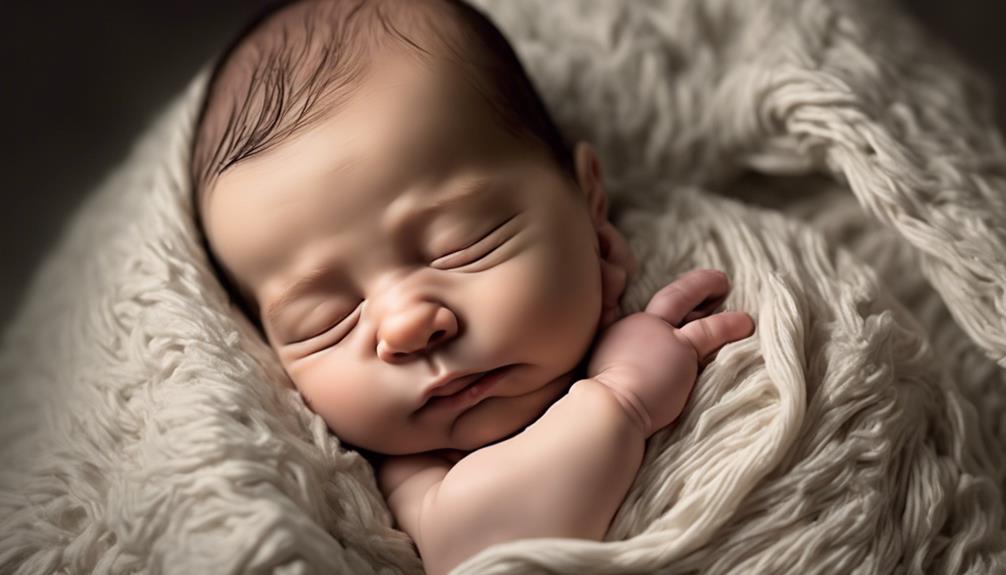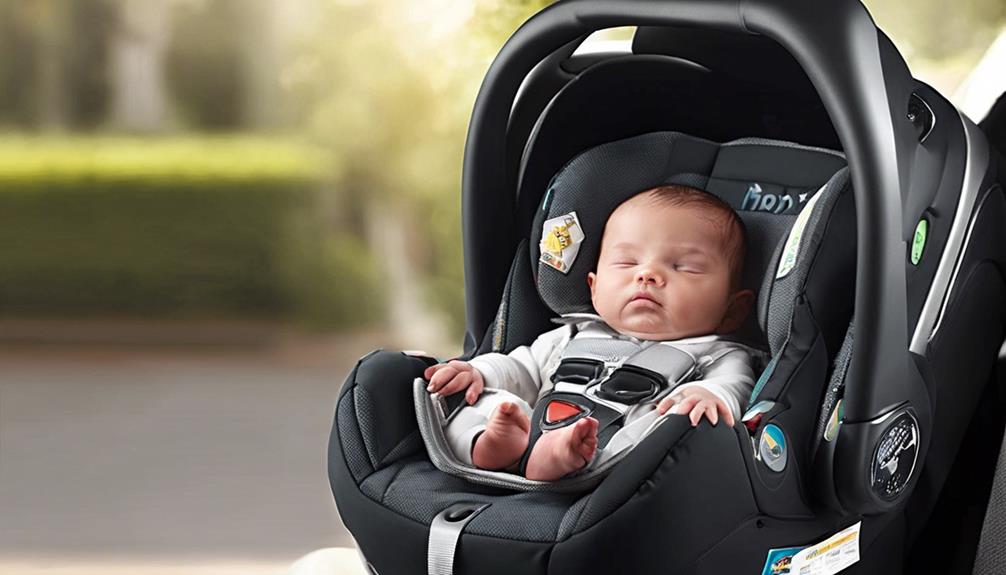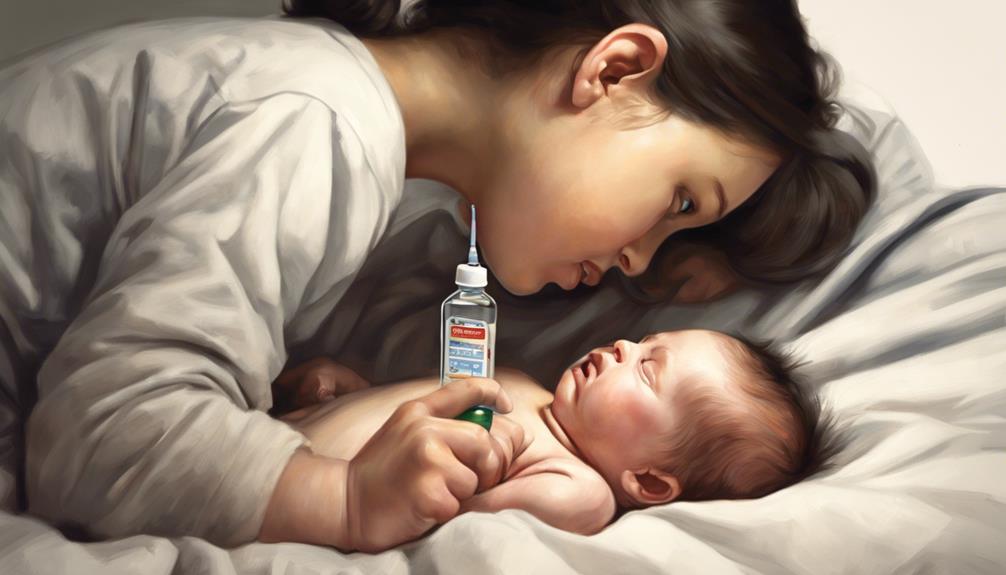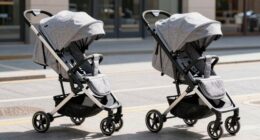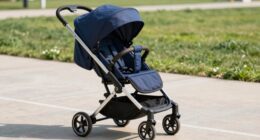If you've ever wondered why your newborn has hiccups, it's time to understand the underlying reasons behind this common occurrence. Those tiny involuntary contractions might seem bothersome, but there's more to them than meets the eye.
Unraveling the mystery behind newborn hiccups can provide insights into your baby's well-being and offer you valuable strategies to address this issue effectively.
So, let's explore the intricacies of newborn hiccups and how to navigate through them with confidence and assurance.
Key Takeaways
- Newborn hiccups stem from diaphragm immaturity and feeding patterns.
- Feeding speed and air intake affect hiccups frequency.
- Immature digestive systems can trigger hiccups in newborns.
- Most newborn hiccups resolve naturally, but seek guidance if prolonged.
Common Causes of Newborn Hiccups
Newborn hiccups often arise due to the immaturity of their diaphragm and heightened reflex sensitivity, which can be triggered by various factors such as feeding, swallowing air, or coordination challenges in breathing and swallowing. Premature babies, in particular, are more susceptible to hiccups due to their developing reflexes and coordination issues. Their diaphragm muscles are still in the process of maturing, making them more prone to experiencing frequent hiccups. The nerve that controls the diaphragm in newborns is also still developing, contributing to the occurrence of hiccups.
Understanding the common causes of newborn hiccups can help you navigate this natural but sometimes concerning phenomenon with more ease and confidence. While it might be distressing to see your little one hiccupping frequently, rest assured that in most cases, this is a normal part of their development. As your baby grows older, you'll likely notice a decrease in the frequency of hiccups as their diaphragm and reflexes mature.
Impact of Feeding on Hiccups
When it comes to hiccups in newborns, the impact of feeding plays a crucial role in their occurrence. Fast feeding or overfeeding can lead to hiccups in newborns as they may swallow excess air during the process. This swallowed air can cause distension in the stomach, triggering hiccups.
The pace at which you feed your newborn also influences the likelihood of hiccups, with slower feeding potentially reducing their frequency. It's important to pay attention to proper latching during breastfeeding, as improper techniques can result in the intake of air, contributing to hiccups.
Monitoring your feeding habits and making adjustments to prevent overfeeding or fast feeding can help minimize hiccups in newborns related to feeding. By being mindful of how you feed your newborn and making adjustments to prevent overfeeding or fast feeding, you can help reduce the occurrence of hiccups and ensure a more comfortable feeding experience for your little one.
Immature Digestive System and Hiccups
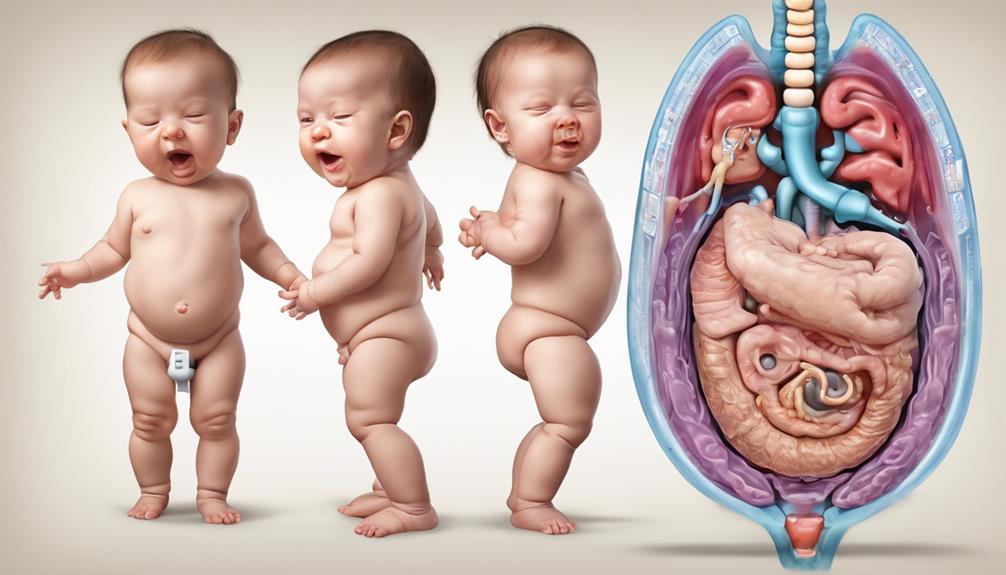
If you notice your baby experiencing frequent hiccups, it could be due to their immature digestive system causing diaphragm spasms. Newborns often get hiccups because their digestive system is still developing, leading to these involuntary contractions of the diaphragm. The nerve pathways in newborns are also developing, which can cause the diaphragm to twitch and result in frequent hiccups. Premature babies, in particular, are more prone to hiccups as their reflexes are still maturing. In addition, coordination issues between breathing and swallowing in newborns can trigger hiccups. Despite being bothersome at times, hiccups in newborns may actually play a role in healthy brain development. Below is a table summarizing the key points related to baby hiccups and their connection to an immature digestive system causing diaphragm spasms:
| Key Points | Baby Hiccups | Immature Digestive System |
|---|---|---|
| Causes | Developing nerve pathways, immature digestive system, coordination issues | Immature digestive system can lead to diaphragm spasms |
| Frequency | Common in newborns and premature babies | More frequent in newborns due to digestive system development |
| Impact on development | May play a role in healthy brain development | Can affect breathing and swallowing coordination in newborns |
Duration of Newborn Hiccups
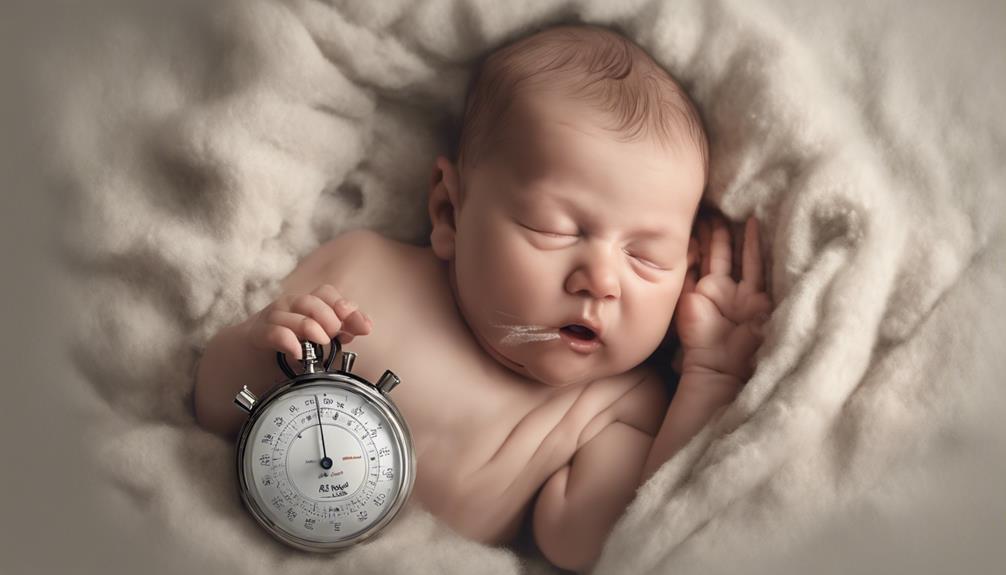
Prolonged or frequent hiccups in your newborn may cause concern and prompt a discussion with a pediatrician for reassurance. Baby hiccups can vary in duration, lasting anywhere from a few minutes to up to 10-20 minutes at a time. Remember, it's common for newborns to experience hiccups multiple times a day.
While most of the time hiccups in newborns resolve on their own without any need for intervention, some babies may have hiccups that are more frequent or prolonged than others. If you find that your newborn's hiccups are lasting longer or occurring very frequently, seeking guidance from your pediatrician for further evaluation and reassurance is advisable.
Remedies for Infant Hiccups
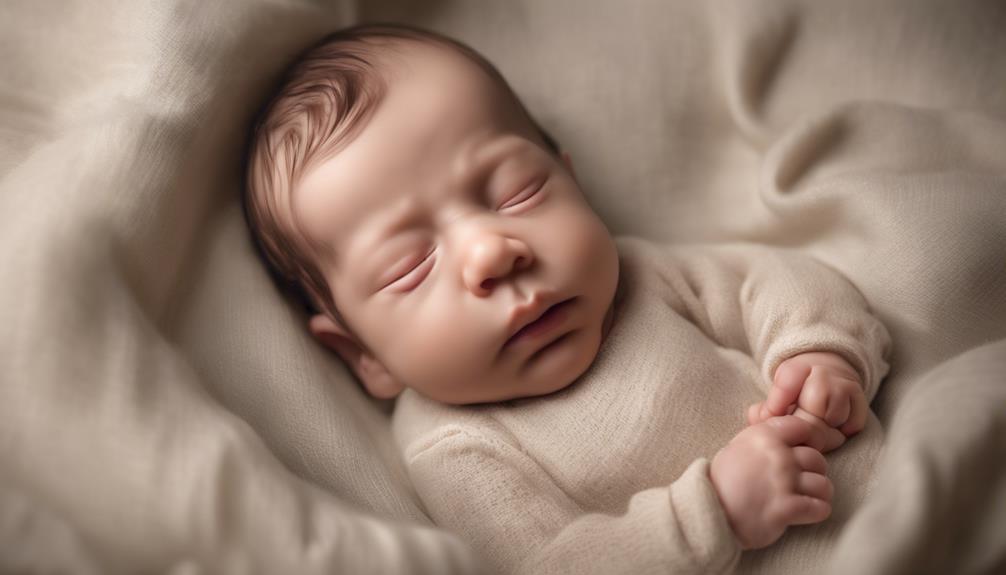
To guarantee infant hiccups, consider implementing simple remedies such as burping the baby during and after feedings to release trapped air and reduce discomfort. Offering a pacifier or something for the baby to suck on can help soothe the diaphragm and alleviate hiccups. Gripe water drops, under pediatrician approval, may also be used to calm the baby's digestive system and lessen hiccups.
It's essential to maintain a calm environment during feedings and avoid overfeeding to prevent hiccups in infants. Remember, allowing hiccups to pass naturally is often the most effective and safe approach to managing baby hiccups.
Frequently Asked Questions
What Are the Reasons for Hiccups in Newborns?
Hiccups in newborns happen as their diaphragm gets tickled, making vocal cords close quickly. Their immature nerve control of the diaphragm increases hiccup vulnerability. These hiccups might even aid in healthy brain development.
How Do You Stop Hiccups in Newborns?
To stop hiccups in your newborn, try burping during and after feedings, change feeding positions, offer a pacifier, avoid overfeeding, feed smaller amounts more frequently, pat or rub their back gently. Consult your pediatrician for guidance.
Does Hiccups Mean Your Newborn Is Full?
Hiccups in newborns do not always mean they are full. These hiccups are common and linked to developing systems. Whether before, during, or after feeding, hiccups are normal and not solely tied to hunger cues.
Is It OK to Lay Baby Down With Hiccups?
It's alright to lay your baby down with hiccups; they won't harm breathing. If hiccups persist and cause worry, consult a pediatrician. For reflux-related hiccups, keeping baby upright helps prevent vomiting. Trust your instincts and seek professional guidance when needed.
Conclusion
To summarize, understanding the underlying causes of your newborn's hiccups can help ease your worries.
By implementing simple remedies like burping and offering a pacifier, you can provide comfort to your little one.
Remember, hiccups are a natural part of development and play a role in your baby's growth.
Stay informed, stay calm, and seek guidance from your pediatrician if needed.
Embrace the hiccups as a sign of your baby's healthy development.
